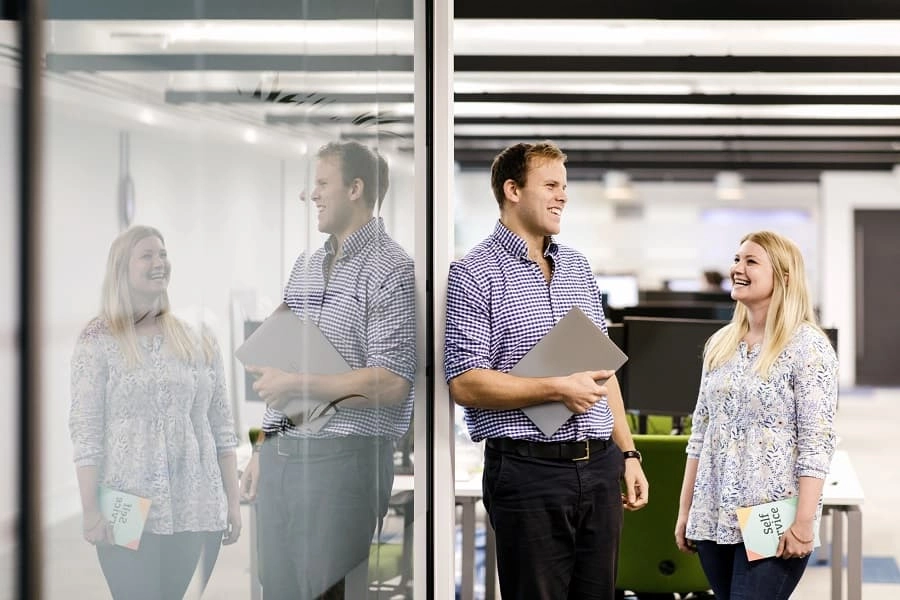5 things we could easily digitise at work now
Long gone are the days when all contracts and invoices had to be sent to the target person by post, and for some time now we have even replaced company archives with servers. But today, there are still tasks that we do manually or in person - rather than relying on technology solutions that are already available. Here are five activities that we could easily digitise in our daily lives using currently available tools.

Catering
When a guest arrives at the office, we typically have to tell the reception desk in person, by email or by phone to make sure they are allowed in. This can be further complicated if the guest arrives by car and we need to reserve a parking space for them. A service management system can make this much easier: staff can record online when and who arrives at the building, so they can see straight away at reception who they need to direct and where. This also avoids the need to write long emails about how to get to the office - or to wait for your guest in person at the entrance.
As you can see, the receptionist can now tell you exactly where to go and how to get there.
Knowledge sharing
A recent HR anecdote is that a new colleague is a cost in the first month and doesn't start making a profit for the company until the third month. However, it can make it easier for a new employee to learn the ropes and solve problems on a day-to-day basis if key company information and common questions and answers within the company are housed in a common digital platform with search functionality, an online knowledge base. On such a platform, anyone can type their current question into a search engine and find the answer immediately - without having to look for the person responsible for the question.
As a result, the online platform can be used to provide a single, online platform for all questions and answers.
Reservation of property and premises
It's a common occurrence in offices when two teams occupy the same meeting room, or the room is just missing the tools they need. If there are shared cars or hot desks in the company, conflict is almost guaranteed. In a shared digital system that can be conveniently accessed from a mobile app, a single graphical representation of all company assets - desks, keys, access cards, cars, laptops, rooms - and their occupancy can be displayed, and colleagues can book anything they want at a moment's notice.
Contract management
Contracts - if the company does not have a separate system for this - are usually sent by e-mail between the partner and us, which often results in a long correspondence with many rounds of amendments, and at the end we do not even know whether we have signed the document and what clauses and deadlines the final version contained. If you are working on a large number of contractual tasks or services, you can see the deadlines and tasks related to them in one place in a suitable software, which can prevent, for example, unplanned contract extensions.
Task scheduling
Task scheduling and process management applications and digital interfaces are not new, and many smaller companies are already using some kind of solution to enable colleagues to track workflows on a common online interface. However, there is rarely a solution for recording repetitive tasks - these typically need to be recorded separately if you want a reminder every week or month. In a complex system, however, recurring operational tasks and processes are already automatically flagged, so there is less chance of them being forgotten by the person responsible.
The automation and digitisation of these smaller tasks can take a big burden off workers, and with less attention to operational tasks, more time can be spent on more important areas.
